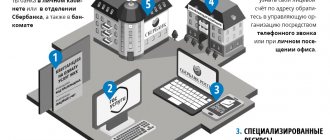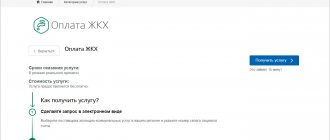Issues discussed in the material:
- 3 types of mortgage insurance
- The need for life insurance with a mortgage
- How much does life insurance cost and is it necessary?
- 6 factors influencing the amount of insurance
- Where is life insurance cheaper?
- Step-by-step instructions for mortgage life insurance
- Saving on life insurance for your mortgage
- The essence of endowment life insurance
- Pros and cons of endowment life insurance
- Rating of companies offering NSZH
Life insurance has recently become increasingly popular. Firstly, among those who take out a mortgage, since banks require such insurance, although illegally. Secondly, among those who want to protect themselves from accidents, and even earn extra money from it. Insurance companies have different products for different situations.
For many people, mortgage life insurance is a formality, although if you think about it, it is not superfluous. However, at the stage of buying a home on credit, additional expenses only cause problems. In this case, people are looking for cheaper options, and this is logical. You can save money if you conduct a thorough analysis of the offers on the market.
The need for life insurance with a mortgage
The purchase of real estate under a mortgage agreement requires compulsory health and life insurance for the borrower. Where this service will cost him less is up to him to choose, and the bank provides a list of accredited insurance agencies. However, some financial organizations also provide life and property insurance for mortgages, and this is even cheaper than contacting an insurance company.
Know that you, as a borrower, have every right to refuse life and health insurance from the bank if you are not satisfied with the cost of services. You can submit a written refusal to the bank and independently look for an insurer whose life insurance service will be cheaper.
Life and property insurance for a mortgage is beneficial both to the bank providing the loan and to the individual client. An accident or illness can happen to anyone, so insuring your life and health is not an unnecessary precaution.
Insurance risks
In the process of fulfilling obligations under a mortgage loan, the client may encounter circumstances that do not allow him to fulfill the terms of the agreement with the bank, including:
- injury, illness or death;
- loss of work or ability to work, including disability;
- other unforeseen life circumstances.
Also, property purchased with a mortgage may be damaged or lost as a result of:
- natural disaster;
- explosion or fire;
- flooding due to utility failures;
- actions of third parties.
The bank anticipates the likelihood of the above events and takes measures to return the borrowed funds, since one of the functions of a financial institution is to protect the interests of shareholders.
According to the requirements of the current legislation, risk insurance when applying for a mortgage is mandatory; this condition is defined in the Law “On Mortgages” with the latest amendments No. 483 Federal Law dated December 27, 2019. The document requires insuring the property, but does not imply insurance of the borrower’s personal risks. This condition often becomes the subject of disputes when applying for a loan.
How we are working:
Leave a request Leave a request
Confirm your order
Get your policy
How much does life insurance cost, and is it necessary?
There is no simple and clear answer to the question of where life insurance is cheaper. Prices for this service vary greatly among different insurance companies. In addition, the loan term, insurance conditions and set of options, and the list of risks included in the contract also influence.
Is it mandatory to take out a life insurance policy when purchasing an apartment with a mortgage? Not always. If the lending bank does not stipulate this clause in the terms of the mortgage agreement, then you may not insure your life. Check this point with your bank.
Your costs of life insurance for a mortgage will depend not only on the choice of insurance company, but also on what mandatory requirements the bank providing the mortgage loan imposes on the borrower. As a rule, insurance costs 5,000-25,000 rubles. There are banks that do not require such insurance from clients at all, and then the costs for it will be zero.
Where is life insurance cheaper?
Let's look at the example of the cost of life insurance offered by the largest insurers in the Russian Federation.
- A healthy 38-year-old woman with no bad habits or risky hobbies, working in a relatively safe job.
- A 35-year-old man with no bad habits or risky hobbies, with a relatively safe job.
The mortgage loan for both respondents is 2 million rubles. Prices are current as of August 2021, results are presented in percentage and monetary terms.
| № | Insurance company name | Amount of insurance for a woman (rubles) | Amount of insurance for a man (rubles) |
| 2 | Reso-Garantiya | 5820 | 12 300 |
| 3 | SOGAZ | 3815 | 7319 |
| 4 | Rosgosstrakh | 1900 | 1900 |
| 5 | VSK | 1665 | 1665 |
| 6 | Alpha insurance | 2000 | 2000 |
| 8 | Insurance group "UralSIB" | 3080 | 6600 |
| 9 | Russian standard | From 3500 | From 3500 |
| 10 | Ingosstrakh | 1376 | 1376 |
Where is the cheapest mortgage life insurance? Calculators on insurance company websites will help you calculate costs and rates. You can quickly choose the most profitable solution.
Step-by-step instructions for mortgage life insurance
The bank does not have the opportunity to force the borrower to take out insurance in a particular organization. Each bank that offers mortgage loans works with a number of accredited insurers. But this does not mean that, as a client of this bank, you are obliged to deal exclusively with them. You have the right to compare prices and choose the company that offers life insurance services as cheaply as possible.
Step 1. Choose an insurer.
This is the first thing you should do if the bank obliges you to insure your life and health. Choose from those companies that are accredited by your bank: in this case, you can rest assured of their reliability (although this narrows your search).
To become accredited, an insurer undergoes a thorough review by a credit reporting firm. Only those insurers who have extensive experience and whose reputation and financial position are not in doubt can receive this status. And, of course, the bank evaluates the solvency of each applicant company.
Criteria for selecting insurance companies:
- Work experience in the insurance market.
- Tariff amount.
- Place in the ranking compiled by independent experts (for example, the Expert RA agency).
- Special offers and promotions for customers.
The bank provides a list of verified insurance companies to a client wishing to obtain a mortgage. Which one to choose is his decision. As a rule, people focus on the price of services.
Step 2. Decide on the type of insurance.
The bank obliges you to insure only real estate, but the decision regarding insuring your own life and health is yours. Carefully study the conditions of both policies, the cost of life insurance, etc., you may find it cheaper.
If you sign two insurance contracts at the same time, you may be given a discount. But you are not obligated to do this and can easily insure your property with one company, and your own health and life with another, and no one has the right to interfere with you in this.
There are insurers with whom you can enter into a comprehensive insurance agreement that covers several types of risks simultaneously. In such cases, many lenders reduce the interest rate on the mortgage loan.
Step 3. We collect a package of necessary documents.
There is no universal set of documents that will suit any insurer. Find out what documents your insurance company requires (they can vary greatly for different types of insurance and different categories of clients).
The basic set of documents includes:
- Russian Federation passport of the borrower;
- application for a life insurance contract;
- contract of sale of an apartment;
- documents certifying ownership of the purchased property.
If you want to insure your health and life, you will have to collect medical certificates about your current condition.
Step 4. Submit a package of documents for verification.
Having collected all the necessary certificates and other documents, you will have to send them for verification to your insurance company. She will decide whether to sign an agreement with you or reject your application, and at what rate to work with you.
Step 5. Pay for the insurance service and pick up your policy.
When the insurance company approves your application with a package of documents and a contract, all you have to do is deposit the money and receive the policy. Before signing it, carefully read all the clauses of the contract, clarify everything that is unclear and raises doubts.
The insurance contract covers all conditions taken into account by the insurer. Your task is to thoroughly understand what you are signing up for, what circumstances will lead to the payment of compensation, and which will turn out to be insignificant. If you have any doubts about an insurance contract, consult with an attorney on each clause to understand all of the obligations and rights of the parties.
What is included in mortgage insurance
Typically, lenders work with accredited insurance companies, captive firms, that insure:
- Real estate - compulsory insurance provided for by the Mortgage Law. The policy guarantees the lender the repayment of the loan in the event of a deterioration in the financial condition of the borrower or loss/damage to the collateral. The object of protection is an apartment, house, land plot. Standard risks include fires, natural disasters, water supply system failures, theft, household gas explosions. The property should not be in disrepair, dilapidated (physical wear and tear - no more than 70%), unfinished or under a ban (arrest, bail, legal disputes). The policy period coincides with the loan repayment period (or is extended every 1-3 years). The insured amount covers the full value of the property or the balance of the mortgage debt (in case of refinancing). The amount of payments depends on the policy of the insurance company and the package of services (set of insured events). The beneficiary is the creditor to whom the insurance company pays compensation for damage upon the occurrence of an insured event.
- Title - protection against the risk of losing ownership of property if the court declares the purchase and sale transaction invalid or the previous owners of the property are incompetent. Title insurance is voluntary. It is used when purchasing housing in new buildings, on the secondary market, it helps the lender and borrower to avoid financial losses in situations related to fraud. The cost of insurance depends on the actual price of the property, the number of transactions carried out with it, and the policy term (from one to 10 years).
- Civil liability for damage caused to the life/health/property of third parties during the operation of collateral real estate. Advantages of insurance - save money when an insured event occurs, no need to waste time on legal proceedings. Beneficiaries are third parties to whom the insurance company transfers compensation. If the property is rented and the damage is caused by the tenants, there will be no refund. Tariffs - 0.3-0.7% of the property value.
- Life/health of the borrower. Insurance companies offer life insurance with a fixed or variable rate. The insured amount is usually equal to the loan debt and decreases along with it, or may be higher, but not more than 10%. The SG agreement is concluded for 1 year with annual renewal.
Often insurance companies offer comprehensive insurance for mortgages, which includes all types of mortgage insurance - real estate, title, life, liability. This packaged product reduces the financial impact of damages and losses resulting from multiple events.
Saving on life insurance for your mortgage
Finding the cheapest life insurance is not the main task. After all, as the price of insurance decreases, the amount of the insurance premium that you will be given if health problems arise also decreases.
Purchasing comprehensive insurance that covers not only title, but also home and life insurance can save you up to 40%.
Insurance companies run promotions, and if you are looking for solutions, track and compare them. This may be a discount for the first year of insurance or for the entire loan repayment period.
No one can prevent you from changing the insurance company during the term of the mortgage agreement. When you switch from a competitor, insurers can give you an attractive discount - up to 10-15%. But this must also be agreed with the bank. He won't give you any problems if you switch to one of the insurers on his list of accredited firms. This company will probably ask you for a package of documents for the apartment: archival title documents and housing assessments. Take this into account and allow extra time for their preparation.
If you pay off your mortgage early, the insurer may partially return your insurance premium. But you will receive it in full only if you stop working with the company before the policy ends.
Real estate and lender's mortgage insurance
Registration of a mortgage loan is associated with achieving unity of obligations of three parties: the bank; borrower and insurance company.
To objectively assess the costs and benefits of insuring mortgage risks, it is necessary to analyze the situation from the position of each participant in the transaction.
Bank - provides funds to individuals for the purchase of housing on the terms of gradual payment of the cost of the property and remuneration to the bank in the amount of the interest rate. The greater the bank’s risks, the greater the amount of remuneration it claims and the stricter the requirements for the borrower and the conditions for providing the loan. Even taking into account that for the period of the loan the real estate is pledged to the bank, the financial institution strives to compensate as much as possible for losses in the event of risks that impede the timely repayment of the loan.
Borrower is an individual who receives funds from the bank to purchase housing and accepts an obligation to repay part of the debt at a certain frequency. By signing a mortgage agreement, a person expects that during the period of the obligation his life circumstances will be stable and he will fulfill his obligations under the agreement. Most often, the borrower does not have an action plan for the decade ahead that eliminates the risk of reasons for non-payment. The borrower's maximum risks are reduced to a situation in which he will lose his home and the funds already paid.
An insurance company - through mortgage insurance, acts as a guarantor of full or partial repayment of the loan in the event of unforeseen circumstances that do not allow a person to fulfill their obligations to the bank. The amount required to compensate for risks is formed through consolidated contributions of many insured persons. By receiving from the borrower the premium specified in the insurance contract, the insurance company undertakes to partially or fully repay the loan in the event of an insured event.
The list of insurance events, the procedure for their recognition, as well as the rules for payment of compensation depend on the terms of the contract. If an insured event does not occur during the validity period of the loan and the borrower independently repays the loan, the cost of mortgage property insurance may be revised and part of the funds returned to the client.
The essence of endowment life insurance
The need for life insurance (accumulative life insurance) arises when buying an apartment without taking out loans, if you need to save for retirement, education of children or some other goal.
In the booklets of insurance companies describing the conditions of endowment life insurance, everything is usually described very colorfully and positively: the client does not need to do anything, the company will do everything for him, the main thing is to pay.
But is NSJ really that beneficial? It performs only two functions:
- Save money.
Agreements are concluded for a very long time, from five to several decades. Decide how much you plan to save during this period: the volume of regular policy contributions will be calculated from it. You can pay them every quarter or just once a year.
Let's consider an example: you are going to save 3 million rubles and sign a contract with an insurance company for 30 years. According to it, you undertake to contribute 100 thousand rubles annually.
But you can go the other way according to the principle “to make it cheaper” - decide on a comfortable amount of payments and, based on them, calculate the total amount.
The insurance company must accrue investment income on the client’s capital formed by contributions.
Client money is placed in bonds or bank deposits, or other financial instruments that have proven their reliability. It is impossible to predict in advance what the profit will be: it is influenced by the state of the economy and the profitability of investments.
In any case, the policyholder guarantees to the client that he will annually pay him the minimum income (the amount of which is reflected in the contract) regardless of any changes. These are small amounts, about 2-4% per annum. The client’s income will not fall below this level, even if the insurance company’s investments turned out to be unprofitable. But the income may be higher than that specified in the contract if the insurance company earns more on investments.
- Get insurance coverage.
As soon as the NJ agreement is signed, the client falls under the protection of the insurance company: the company will compensate him for losses if an insured event occurs.
The number of insured events includes the death of the client (including death from accidents), loss of ability to work temporarily or permanently (with disability), treatment costs, etc.
There is a basic tariff (usually including only death) and other optional options that can be activated by order of the client. Life insurance alone (for mortgage, etc.) costs less than a policy with additional health options.
Pros and cons of endowment life insurance
Advantages of this type of insurance:
- Tax benefits
Citizens of the Russian Federation are entitled to tax deductions for annual insurance premiums for private life insurance in the amount of up to 13% of the contribution amount (the contribution limit is 120 thousand rubles per year, the deduction in this case will be 15,600 rubles).
That is, endowment life and health insurance will cost you less, while the tax office calculates income from the full amount. Investments become more profitable.
For example, if you pay a premium for an insurance policy in the amount of 100 thousand rubles per year, the state returns 13 thousand rubles to you, and your actual insurance costs are only 87 thousand rubles. If the fixed return on the policy is 4%, then profit is accrued from all 100 thousand rubles, which makes it possible to save a tidy sum over the years: 260 thousand rubles in 20 years, 390 thousand rubles in 30 and 520 thousand rubles in 40.
- Legal protection of the policy.
A life insurance policy is not an asset or property of a person, but merely a service provided to him by an insurance company. Payments for insured events or upon expiration of the contract are not profit.
Thus, no one can take away the money spent on insurance from you by seizing it, and by a court decision, the bailiffs will not be able to collect it or block your account.
Since the NJ policy does not apply to marital property (since it is not property at all), it will not have to be divided during a divorce. The ex-husband or wife has no rights to these funds.
- Insurance coverage covers the entire duration of the contract.
The insurance lasts for the entire period while the concluded NSJ contract is valid. Whenever an insured event occurs (even if it happens in the first month of the policy), you will receive an insurance payment in the amounts specified in your contract.
And no matter how many contributions the client had made at that time, payment is guaranteed, even if only the first payment was made.
Another advantage is that the insurance coverage will not end later, when the client’s health weakens over the years.
If you insure yourself and are looking for the cheapest life insurance, then every year you will be forced to purchase a new policy for the next period, and the insurance company may also refuse you or charge more for their services if you are seriously ill, since this increases the risk of insured event. However, insurance denial is still more likely. With NSJ you don't have to worry about this.
The profitability of a transaction is judged by the ratio of all the advantages and disadvantages. For example, the terms of service may be very attractive, but the disadvantages will still outweigh the advantages.
Typical problems with endowment life insurance are:
- Conclusion of a contract for a very long period.
Over the course of two or three decades, your circumstances may change many times. If your finances get worse, you may find it harder to make your annual or quarterly payments. Therefore, some clients stop paying for insurance altogether.
How to be? Be sure to talk to your insurer and try to find a solution together. Perhaps the company will accommodate you by reducing the contribution or giving you a deferment.
If you simply let the situation take its course, then after three to four months of delay in the next payment, the life insurance contract will automatically be terminated.
- You can lose not only your insurance, but also part of your accumulated funds.
The redemption amount is a share or percentage of the total amount of money that the client has accumulated. It goes to him, and the insurer takes all other funds.
Endowment life and health insurance programs are always long-term. It is extremely unprofitable for insurance companies if the client terminates the contract early, and such behavior is punishable by a fine - the remainder of the redemption amount.
Its size is determined by the period of validity of the contract. As a rule, for the first couple of years it is completely zero (if you terminate the contract, no part of your money will be returned to you). The longer you own your home insurance policy and the more accurately you make payments, the higher this amount is. In the fourth year it can be up to 40%, the next – up to 45%, etc. However, it will still never grow to 100%.
- The insurance payment is not a contribution.
Regular contributions from clients under a life insurance contract are placed on deposits in banks, but this money itself is not insured; it is not subject to the law on deposit insurance. That is, the insurance company does not guarantee that it will be able to return them to you. However, this is already her problem.
- You need to study all the details of the contract very carefully.
Agents selling an insurance product and consumers have very different interests. The client is simply looking for life insurance as cheaply as possible. The seller, on the other hand, tries to earn more commissions, while he uses all means to motivate the client to enter into an agreement, presenting the conditions as the most favorable and hiding inconvenient details. Some managers go so far as to outright lie and distort the terms of the policy.
The agent's benefit is an increased percentage of client premiums paid in the first three years of the policy; the commission amount sometimes reaches 20-30%. Naturally, the agent wants to sell as many of these policies as possible.
Read the entire contract carefully, understand all the terms, and take the time to do so. The more seriously you approach choosing an insurer and studying the terms of the contract, the cheaper life insurance will cost you (for credit or other purposes).
Mortgage Insurance
1. General Provisions
The policy for maintaining confidentiality and ensuring the security of personal data when processing it at Broker Parter (hereinafter referred to as the Policy) was developed in accordance with the requirements of the Federal Law of July 27, 2006 No. 152-FZ “On Personal Data” and applies to all personal data, processed by Broker Partner.
The purpose of the Policy is to provide personal data subjects and clients*, as well as persons wishing to use products and services, employees, potential employees (applicants), as well as agents, agents (individual entrepreneurs), representatives of Broker Partner partners with the necessary information to understand what personal data is collected by Broker Partner and for what purpose, how it is processed, and what requirements are implemented to ensure its security.
Providing Broker Partner clients with insurance products and services requires the collection and further processing of personal data that allows us to identify policyholders and (or) insured Broker Partners, their representatives and (or) beneficiaries and provide their services. The composition and volume of required information are determined by the current legislation of the Russian Federation and internal regulatory documents of Broker Partner. If these persons fail to provide the required information, Broker Partner has the right to refuse to provide them with service.
Acting in their own interests, Broker Partner clients invite third parties to participate in their relations with Broker Partner. In this case, they are obliged to ensure that the specified persons provide the required information or provide it themselves, notifying the specified persons of the fact of providing such information for processing by Broker Partner and familiarizing them with the provisions of this Policy.
The use of insurance products and services provided by Broker Partner, as well as communication to Broker Partner, including through third parties, of your personal data means the consent of the subjects to the processing of their personal data in accordance with the Policy. In case of disagreement with these conditions, personal data subjects must refrain from using insurance products and services and providing their personal data to Broker Partner.
The provision of personal data by potential employees (applicants) of Broker Partner is necessary for further employment at Broker Partner and the possibility of concluding an employment agreement/contract between the potential employee (applicant) and Broker Partner. The composition and volume of required information are determined by the current legislation of the Russian Federation and internal regulatory documents of Broker Partner. If a potential employee (applicant) fails to provide the required information, Broker Partner has the right to refuse to employ them at Broker Partner.
Providing Broker Partner employees with their personal data is required to organize personnel records of Broker Partner, ensure compliance with the legislation of the Russian Federation and other regulations, conclude and fulfill obligations under employment and civil contracts, conduct personnel records, and assist employees in employment, training and promotion, use of various types of benefits, compliance with the requirements of the tax legislation of the Russian Federation in connection with the calculation and payment of personal income tax, as well as the unified social tax, pension legislation of the Russian Federation in the formation and presentation of personalized data about each recipient income taken into account when calculating insurance premiums for compulsory pension insurance and security, filling out primary statistical documentation in accordance with the Labor Code of the Russian Federation, the Tax Code of the Russian Federation, Federal Laws of the Russian Federation, the Charter and internal regulations of “Broker Partner”. The composition and volume of required information are determined by the current legislation of the Russian Federation and internal regulatory documents of Broker Partner. If a potential employee (applicant) fails to provide the required information, Broker Partner has the right to refuse to employ them at Broker Partner.
The provision of personal data by agents, agents (individual entrepreneurs), representatives of Broker Partner partners is necessary to comply with the legislation of the Russian Federation, conclude and fulfill obligations under civil contracts, as well as fulfill the requirements of the tax legislation of the Russian Federation. The composition and volume of required information are determined by the current legislation of the Russian Federation and internal regulatory documents of Broker Partner.
"Broker Partner" reserves the right to make necessary changes to the Policy if the current legislation of the Russian Federation and the conditions of its activities change. The policy and all changes to it are approved and put into effect by the Order of the General Director of Broker Partner.
The current version of the Policy is subject to posting on the Internet on the official website of “Broker Partner” www.renins.com and in the service offices of “Broker Partner”.
* – within the framework of this Policy, “Broker Partner” clients are generally understood to mean:
- Insured under mortgage insurance contracts;
- Insured under mortgage insurance contracts;
- Previous property owners under mortgage insurance;
- Policyholders under property and liability insurance contracts;
- Beneficiaries under property and liability insurance contracts;
- Those at fault under property and liability insurance contracts;
- Victims under property and liability insurance contracts;
2. List of personal data processed
- Personal data means any information relating to a directly or indirectly identified or identifiable individual (subject of personal data). In the course of its activities, Broker Partner JSC processes the following personal data of various categories of personal data subjects: last name, first name, patronymic (if any);
- Date of Birth;
- Place of Birth;
- former last name, first name, patronymic;
- passport data or data of another identity document (series, number, date of issue, name of the authority that issued the document);
- surname, given name in Latin letters;
- citizenship;
- photo;
- registration address at the place of residence;
- registration address at the place of residence;
- date of registration at place of residence;
- date of registration at the place of stay;
- contact phone numbers;
- email addresses;
- information about education, qualifications and the presence of special knowledge or special training (series, number, date of issue of the document on graduation from the educational institution, name and location of the educational institution, date of start and completion of training, faculty or department, qualification and specialty upon graduation from the educational institution, academic degree, academic title, knowledge of foreign languages);
- information on advanced training and retraining (series, number, date of issue of the document on advanced training or retraining, name and location of the educational institution, date of start and completion of training, qualification and specialty upon graduation from the educational institution);
- information on labor activity (data on employment at the current time with a full indication of the position, department, name, address and telephone number of the organization, as well as details of other organizations with the full name of positions previously held in them and time of work in these organizations);
- information about the number, series and date of issue of the work book (inserts in it) and the entries in it;
- contents and details of the employment contract;
- information about wages at the previous place of work;
- information about wages (account numbers, data on salary, allowances, taxes);
- information on military registration of persons liable for military service and persons subject to conscription for military service (series, number, date of issue, name of the body that issued the military ID, military registration specialty, military rank, data on acceptance/deregistration) );
- information about the number and series of the state pension insurance certificate;
- information about the taxpayer identification number;
- driver's license data (date of issue of the license, expiration date of the license, name or seal of the authority that issued the license, license number, categories (subcategories) of vehicles covered by the license, additional information or restrictions in encoded form relating to each category ( subcategories) of vehicles);
- information about temporary disability or dependent care;
- information about social benefits and social status (series, number, date of issue, name of the body that issued the document that is the basis for the provision of benefits and status);
- information about marital status;
- information about dependents for tax deductions;
- data on employment at the current time with a full indication of the position, department, name, address and telephone number of the organization;
- contents and details of the insurance contract;
- information about wages at the current place of work;
- Bank details;
- information from the medical questionnaire;
- health information;
- degree of relationship with the person insured under the insurance contract;
- data on the certificate of state registration of property rights (series, number, date of issue, name of the authority that issued the document, subjects of law, type of law, object of law, cadastral (conditional number), existing restrictions on the right);
- contents and details of the insurance policy;
- citizenship in Latin letters;
- registration address at the place of residence in Latin letters;
- passport data (series, number, date of issue, name of the authority that issued the document);
- health information;
- list of medical services;
- weight;
- height;
- driving experience;
- vehicle brand;
- individual registration plate (number);
- region;
- vehicle registration certificate data (registration plate, identification number, make, model, vehicle type, vehicle category, vehicle year of manufacture, engine model, engine No., weight No., body No., color, engine power, engine displacement, passport series, permissible maximum weight, unladen weight);
- PTS data (identification number, make, model of the vehicle, name (type) of the vehicle, category of the vehicle, year of manufacture of the vehicle, engine model, weight No., body No., body color, engine power, engine displacement, engine type, permissible maximum weight, unloaded weight, vehicle manufacturer, country of export of the vehicle, series, number, name of the authority that issued the document);
- data of the certificate of state registration of property rights (series, number, date of issue, name of the authority that issued the document);
- Cookies, IP address of a computer or mobile device, date and time of visiting the site, browser type, operating system type, mobile device model, type of mobile device when visiting the site
3. Legal grounds and purposes of processing personal data
"Broker Partner" processes personal data for the purpose of carrying out insurance activities within the framework of exercising its rights and legitimate interests, as well as the resulting requirements provided for by the current legislation of the Russian Federation, in particular: Federal Law of November 27, 1992 No. 4015-1-FZ “On the organization of insurance business in the Russian Federation”, Federal Law dated November 29, 2010 No. 326-FZ “On compulsory health insurance in the Russian Federation”, Federal Law dated July 16, 1998 No. 102-FZ “On mortgage (real estate pledge)”, Federal Law of July 21, 1997 No. 122-FZ “On State Registration of Rights to Real Estate and Transactions with It”, Federal Law of November 24, 1996 No. 132-FZ “On the Fundamentals of Tourism Activities”, Federal Law of April 25, 2002 No. 40-FZ “ On compulsory insurance of civil liability of vehicle owners", Federal Law dated 08/07/2001 No. 115-FZ "On combating the legalization (laundering) of proceeds from crime and the financing of terrorism", Federal Law dated 04/01/1996 No. 27-FZ "On individual (personalized) accounting in the compulsory pension insurance system”, Federal Law dated July 27, 2006 No. 152-FZ “On Personal Data”, Federal Law dated June 27, 2011 No. 161-FZ “On the National Payment System”, Federal Law dated March 28. 1998 No. 53-FZ “On military duty and military service”, Federal Law dated 02.26.1997 No. 31-FZ “On mobilization preparation and mobilization in the Russian Federation”, Federal Law dated 21.11.1996 No. 129-FZ “On accounting” , the Civil Code of the Russian Federation, the Tax Code of the Russian Federation, the Labor Code of the Russian Federation, the Family Code of the Russian Federation, as well as the Charter and internal regulatory documents of “Broker Partner”.
4. Use of cookies
The Broker Partner website uses cookie technology to track the preferences of site visitors and improve products and services. A cookie is a small piece of text sent to a web browser by a website.
When visiting the Broker Partner website, data is automatically collected, including: IP address, date and time of site visit, browser type, operating system type, device model and type and other similar information.
The collected information is used for the following purposes:
- to collect statistical data to improve the functionality and management of the site;
- for effective advertising management;
- to temporarily track website activity;
- to improve the level of service.
"Broker Partner" may use cookies for the purpose of processing metric systems Google Analytics, Yandex.Metrica and other similar services.
A website visitor can independently disable the cookie function in the web browser; in this case, some sections of the Broker Partner website may be inaccessible or not work correctly. To manage cookies using the web browser you are using, you can use the instructions provided by the web browser developer
5. Persons with access to personal data
Broker Partner employees who, in accordance with their job responsibilities, are vested with such powers have access to the processed personal data. Access of other persons to personal data processed by Broker Partner can be provided only in cases provided for by law or with the consent of the subject of personal data. An essential condition of the agreement concluded by Broker Partner with the person who is granted access to personal data is the obligation of the specified person to maintain confidentiality and ensure the security of personal data during their processing.
6. Methods of processing personal data
In order to comply with the requirements of the current legislation of the Russian Federation and its contractual obligations, Broker Partner uses both automated processing of personal data and non-automated processing using paper document flow. The set of processing operations includes collection, recording, systematization, accumulation, storage, clarification (updating, changing), extraction, use, transfer (distribution, provision, access), depersonalization, blocking, deletion, destruction of personal data.
7. Terms for processing personal data
The terms for processing personal data specified in section 2 of the Policy are determined based on the purposes of processing personal data, in accordance with the requirements of federal laws, order of the Ministry of Culture of the Russian Federation dated August 25, 2010 No. 558 “On approval of the “List of standard management archival documents generated in the course of the activities of state bodies, local governments and organizations, indicating storage periods,” Resolution of the Federal Commission for the Securities Market of the Russian Federation dated July 16, 2003 No. 03-33/ps “On approval of the “Regulations on the procedure and storage periods for documents of joint-stock companies,” as well as the limitation period.
8. Implementable requirements for the protection of personal data
Due to the specifics of insurance activities, the processing of personal data in the Broker Partner information systems is inextricably linked with the protected insurance secret. All employees of Broker Partner are required to keep secret insurance contracts, other personal data, as well as other information established by Broker Partner, unless this contradicts the current legislation of the Russian Federation.
The security of personal data when processed in Broker Partner information systems is ensured using a limited access information protection system, which includes organizational measures and information security means (including encryption (cryptographic) means, means of preventing unauthorized access, software and technical impacts on technical personal data processing tools), as well as information technologies used in the information system.
The exchange of personal data during their processing in information systems is carried out through communication channels, the protection of which is ensured through the implementation of appropriate organizational measures and through the use of technical means of information security.
The placement of information systems, special equipment and security of premises in which work with personal data is carried out, the organization of a security regime in these premises ensure the safety of personal data carriers and information security tools, and also exclude the possibility of uncontrolled entry or stay of unauthorized persons in these premises.
When processing personal data in Broker Partner information systems, the following is ensured:
carrying out measures aimed at preventing unauthorized access to personal data and (or) transfer thereof to persons who do not have the right to access such information;
timely detection of facts of unauthorized access to personal data;
preventing influence on technical means of automated processing of personal data, as a result of which their functioning may be disrupted;
constant monitoring of the level of security of personal data;
the ability to restore personal data modified or destroyed due to unauthorized access to it;
carrying out activities aimed at guaranteed destruction/depersonalization of personal data at the written request of the subject of personal data in cases that do not contradict current legislation.
Rating of companies offering NSZH
Many well-known organizations offer endowment life insurance - some are cheaper, some are more expensive:
- Renaissance Life.
- Alpha Life Insurance.
- Russian Standard Insurance.
- Rosgosstrakh Life.
- Capital Life.
- VSK life line.
This industry is growing slowly but surely. According to experts, the insurance market will expand by 5% annually.
By choosing the right insurance company, you can save a significant amount. However, it is important to ensure that cheaper does not turn into worse: insurers may exclude some insured events from the contract.
So, if you insure only against accidents, then you may not expect insurance payments in the event of death or serious illness leading to disability. Therefore, life and health insurance services should not be too cheap, as this can be risky.








